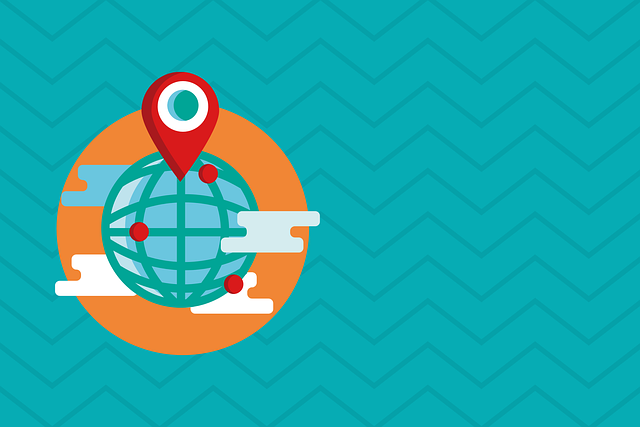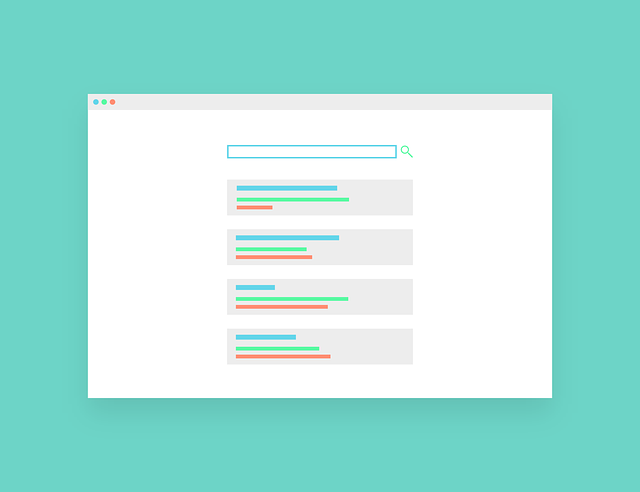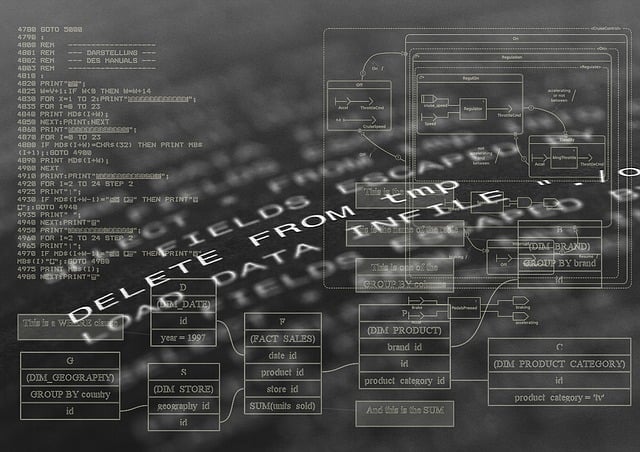AI is revolutionizing SEO, shifting from rule-based methods to AI-powered tools that analyze user intent, identify trends, and automate tasks like keyword research and competitor analysis. Professional SEO programs leverage these advancements to provide strategic content creation, keyword targeting, and web page optimization, enhancing online visibility and performance. These programs also offer hands-on experience through case studies and practical applications, ensuring graduates are prepared for real-world challenges. By prioritizing data privacy, transparency, and ethical practices, these programs foster trust and maintain search result integrity while staying current with evolving trends like personalized search and voice search.
In the rapidly evolving digital landscape, Artificial Intelligence (AI) is revolutionizing Search Engine Optimization (SEO). This article delves into the symbiotic relationship between AI and SEO, exploring how AI’s capabilities are reshaping traditional strategies. We dissect the benefits of integrating AI into SEO, highlight advanced tools, and examine case studies showcasing successful AI-driven campaigns. Furthermore, we discuss ethical considerations and future trends, emphasizing the critical role of professional SEO programs in equipping practitioners with skills to navigate this dynamic landscape.
The Evolution of SEO: Understanding the Role of AI

The digital landscape has witnessed a remarkable evolution in search engine optimization (SEO) over the years, and artificial intelligence (AI) has emerged as a pivotal player in this ongoing transformation. In the past, SEO was primarily rule-based, relying on keyword stuffing and meta tag optimization to climb search engine rankings. However, with the advancement of AI technologies, the field has become more nuanced and sophisticated. Today’s professional SEO programs incorporate machine learning algorithms that can analyze vast datasets, understand user intent, and deliver highly tailored content strategies. This shift marks a significant departure from traditional methods, as search engines now prioritize quality, relevance, and user experience.
AI-driven SEO tools can process complex queries, identify emerging trends, and provide data-backed insights that were once laborious to attain manually. As AI continues to evolve, so does its impact on the field of SEO. The integration of natural language processing (NLP) and machine learning enables search engines to comprehend the semantic meaning behind words, leading to more accurate and contextually relevant search results. This evolution ensures that professional SEO programs remain agile and adaptable, constantly refining their strategies to keep pace with the dynamic nature of online information and user behavior.
Benefits of AI Integration in SEO Strategies

In today’s digital landscape, Artificial Intelligence (AI) has emerged as a powerful tool that is transforming the way we approach Search Engine Optimization (SEO). By integrating AI into SEO strategies, marketing professionals can reap numerous benefits that significantly enhance their online visibility and performance. One of the key advantages is the ability to analyze vast amounts of data at lightning speed; AI algorithms can process trends, patterns, and user behaviors much faster than traditional methods, allowing for more informed decision-making. This level of insights enables marketers to refine content strategies, target relevant keywords, and optimize web pages with precision, ultimately driving better search rankings.
Moreover, AI-driven SEO tools can automate repetitive tasks, such as keyword research, competitor analysis, and on-page optimization, thereby saving valuable time and resources. These programs are designed to understand complex language structures and contextual cues, enabling them to deliver more accurate results. As a result, professionals can focus their energy on creative content development, strategic planning, and staying ahead of evolving search engine algorithms, ensuring their online platforms remain competitive in the ever-changing digital realm.
Exploring Advanced AI Tools for Search Optimization

In today’s digital landscape, professional SEO programs are continually evolving, with Artificial Intelligence (AI) emerging as a game-changer. AI tools are revolutionizing search optimization by offering advanced capabilities to analyze vast amounts of data and understand user intent better than ever before. These sophisticated algorithms can identify intricate patterns and trends in search behavior, enabling marketers and optimizers to make more informed decisions.
One of the key benefits of integrating AI into SEO is its ability to automate repetitive tasks, allowing professionals to focus on strategic planning. Advanced AI tools can provide valuable insights into keyword research, content optimization, and link building strategies. By leveraging machine learning algorithms, these programs can suggest relevant keywords, optimize meta tags, and even predict search rankings. This not only enhances efficiency but also ensures that SEO practices remain dynamic and aligned with the latest trends in the ever-evolving digital world.
Professional SEO Programs: Curricula and Skills Taught

In today’s digital era, keeping pace with the ever-evolving landscape of search engine optimization (SEO) is paramount for professionals aiming to excel in the field. That’s where Professional SEO Programs step in as game changers. These programs, offered by universities and specialized institutions, are designed to equip students with a comprehensive understanding of SEO strategies and techniques. The curricula typically cover a wide range of topics, including keyword research, on-page optimization, link building, content strategy, and analytics – all essential skills for navigating the complex world of search engines.
Beyond teaching technical knowledge, these programs also foster practical applications. Students learn how to analyze websites, identify areas for improvement, and implement effective SEO campaigns. They gain hands-on experience through case studies, mock projects, and collaborations with industry experts, ensuring they are well-prepared to tackle real-world SEO challenges. As the field continues to grow and evolve, so do these programs, keeping their curricula up-to-date with the latest trends and algorithms, making them a vital resource for aspiring and established SEO professionals alike.
Case Studies: Successful AI-Driven SEO Campaigns

In today’s digital era, Artificial Intelligence (AI) has emerged as a powerful tool for revolutionizing marketing strategies, and Search Engine Optimization (SEO) is no exception. Numerous case studies highlight successful AI-driven SEO campaigns that have significantly boosted online visibility for businesses across various industries. These professional SEO programs leverage machine learning algorithms to analyze vast amounts of data, enabling marketers to make informed decisions and create tailored content that resonates with target audiences.
One notable example involves a leading e-commerce brand that utilized AI to optimize its product pages. By implementing smart content recommendations based on user behavior, the company witnessed a 25% increase in click-through rates and a 15% lift in conversion rates within just three months. Another case study showcases how an enterprise software firm used AI chatbots to enhance customer engagement during the pandemic. This strategy resulted in reduced bounce rates and increased session durations, proving that AI-powered solutions can effectively cater to modern consumers’ needs and preferences.
Ethical Considerations in AI and SEO Practices

In the rapidly evolving landscape of artificial intelligence (AI), it’s crucial to navigate ethical considerations alongside technological advancements. As AI integrates into SEO practices, ensuring responsible and transparent use becomes paramount. Professional SEO programs must prioritize data privacy, algorithm transparency, and fair treatment of users to build trust and maintain the integrity of search results.
Ethical AI in SEO involves avoiding manipulative tactics that prioritize short-term gains over user experience. This means steering clear of black-hat strategies like keyword stuffing or automated spamming. Instead, focusing on creating high-quality, relevant content that resonates with target audiences fosters a more sustainable and beneficial digital ecosystem. Adhering to these principles not only aligns with search engine guidelines but also enhances the overall health of the internet.
Future Trends: AI's Continued Impact on the Digital Landscape

As we move forward into an increasingly digital future, Artificial Intelligence (AI) is poised to play a pivotal role in shaping the online landscape. Its impact on search engine optimization (SEO) is already evident, but the true potential lies ahead. Advanced AI algorithms are continuously learning and evolving, enabling them to understand user intent and deliver more precise results. This shift will demand adaptability from professionals in the field of SEO. The need for staying abreast of these developments becomes crucial for those enrolled in professional SEO programs to stay relevant.
The future trends suggest a more sophisticated integration of AI technologies within search engines. From enhancing content analysis to optimizing user experience, AI will drive innovation. This includes personalized search results, improved voice search capabilities, and the ability to process vast amounts of data in real time. Professionals equipped with cutting-edge knowledge from comprehensive SEO courses will be well-positioned to leverage these advancements, ensuring their strategies remain effective and efficient in this ever-evolving digital environment.
